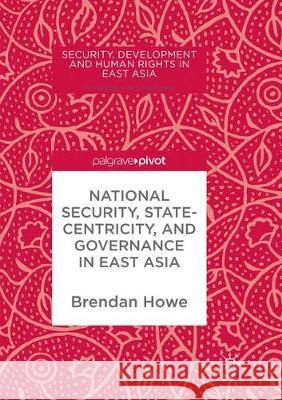National Security, Statecentricity, and Governance in East Asia » książka
topmenu
National Security, Statecentricity, and Governance in East Asia
ISBN-13: 9783319865218 / Angielski / Miękka / 2018 / 160 str.
Kategorie BISAC:
Wydawca:
Palgrave MacMillan
Seria wydawnicza:
Język:
Angielski
ISBN-13:
9783319865218
Rok wydania:
2018
Wydanie:
Softcover Repri
Ilość stron:
160
Oprawa:
Miękka
Wolumenów:
01
Dodatkowe informacje:
Wydanie ilustrowane











